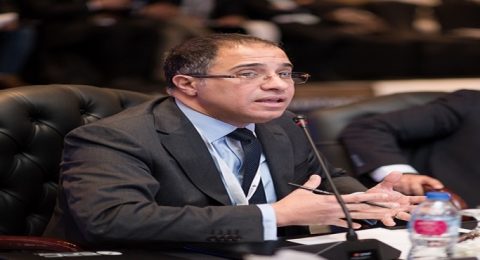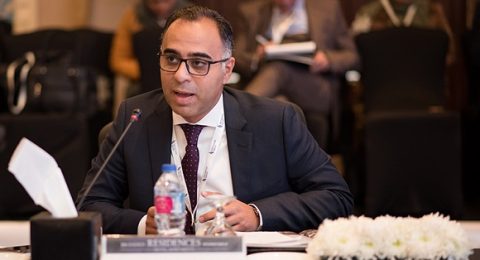Consumers often lack the access to sales networks for selling homes themselves. To find a buyer, sellers typically engage the services of professional intermediaries or what we call brokers. Vast majority of home sales occur with the help of a real estate broker. It is often argued that sellers choose brokers because they have insufficient information about markets, prefer to avoid trouble involved with selling a home and judge that they will receive a higher price for the sale of their home through an intermediary. Brokers typically fill the role of matching buyers with sellers, often in an environment of standards and norms that limit competition between professionals. Thus, Invest-Gate sheds light on the new amendments of the new brokerage law recently approved by the cabinet.
In late December 2021, the cabinet has approved a draft law amending some provisions regulating commercial agency businesses, and some commercial mediation businesses and real estate brokerage businesses, promulgated by Law No. 120 of 1982. The new amendments aim at controlling real estate brokerage activity to guarantee the rights of both parties, buyer, and the real estate agent. The new amendments fall in line with the country’s efforts to support and regulate the real estate market. The draft law sets the conditions for practicing the brokerage profession, introducing new rules and regulations in line with international standards. According to the new draft law, real estate brokers are obliged to register their names in the official records designated for practicing the profession. In addition, brokers’ commission shall not exceed 5% of the unit price and it must be written in the official records. Brokers also must verify the unit’s data and its conformity with reality.
Commenting on the draft law, Tarek Shoukry, chairman of Real Estate Development Chamber of the Federation of Egyptian Industries (FEI), states that Egypt’s real estate sector has witnessed a significant growth over the past seven years and occupied the forefront of the economy. This, in turn, led the government to regulate mechanisms covering all patterns of the sector, especially real estate brokers.
Shoukry adds that the new amendments aim at applying more transparency by identifying the person in charge of the activity and knowing more accurate details to protect the client. “The law obliges the marketer to record the real estate brokerage operation he conducted, commissions, price of the transaction, date of the transaction, personal data of contractors, deposits, and other data and information regarding specified by the minister concerned with trade affairs are recorded.”
Egypt’s real estate market is dealing with types of brokers, fragmented and consolidated, and the new draft law aims at organizing and regulating the profession of real estate brokers across the country. It also aims at protecting clients and enhancing transparency across the sector, being a main contributor to the national economy.
Shoukry also suggests that brokers receive licenses of different categories. They also should take training courses and exams to determine their category and the value of transactions available for them. After passing their sales, the broker can move to a higher category and license, ensuring the that the broker is fully aware and educated of the activity. This also ensure that the sales process is carried out transparently.

President & CEO of Tatweer Misr Ahmed Shalaby
Commenting on brokers and their impact on the market, Ahmed Shalaby, president & CEO of Tatweer Misr, says, “The brokerage market is one of the strongest influential factors in the real estate market nowadays. 70 to 80% of developers’ sales are conducted through brokers. Thus, regulating their profession and setting a code of ethics is very important, as this will affect both brokerage companies and developers.” Shalaby adds, “Away from the number of brokerage companies, there must be a law controlling their activity to ensure that they are competent and qualified to work in these companies. Those brokers must be well- experienced to be able to have a good overview of the market’s status and direction.” He further notes that there must be an authority giving accreditation to brokers to ensure transparency and professionalism.

Iwan Developments CEO Waleed Mokhtar
In the same vein, Waleed Mokhtar, CEO of Iwan Developments, says, “I think that the new draft law is very important, as marketing represents 70-80% of developers’ sales in Egypt. Over the past few years, the number of brokers has doubled, and that’s why it needs to be more organized and controlled. Additionally, brokers working in this sector should pass trainings and get licenses to practice the profession.” Regarding fragmented and consolidated brokers, Mokhtar adds that both should go through trainings and get licenses that they are aware of the market since they benefit both, client, and developer. Furthermore, there must be a transparency between the client and the broker when it comes to the unit’s details. Also, fragmented brokers are expected to acquire most of the market by time.
Abeer Essam, member of the Real Estate Development Chamber, points out that the failure in regulating real estate brokers has affected real estate developers negatively, as the marketers considered themselves partners in mega projects not just promoters. Thus, the ask for higher commissions than developers themselves.
“We faced several problems such as the lack of transparency while promoting the projects regarding the delivery date, and the services and facilities available in the units, in addition to the hasty closure of the brokerage offices before the actual investigation of the client. Thus, the new amendments will set new regulations and more control on brokers,” Essam adds.
She further notes that real estate brokers resorted to the chamber to be part of it, and the matter has not yet been discussed. The matter will be tackled in the chamber’s next meeting upon members’ voting.
It is worth noting that real estate brokerage is the most important arm of real estate development in marketing its projects, representing 30% of the project’s success. Accordingly, it is important to legalize and regulate their activity to protect the client and to guarantee the continuity of the sales process in an effective manner. Real estate brokers must be under the state’s umbrella, represented in on the ministries. They can also join an existing chamber or ask for creating a chamber managed by the FEI.
On the other hand, real estate expert Shady El Zayat explains that the country’s efforts to organize the real estate brokerage activity should not stop at the aforementioned amendments but should address the approval of the licensing system for marketers and be based on an economic study of the field, and the client should share the responsibility to verify all information related to the units under purchase.
Shoukry states that the draft law should ban unregistered brokers, and this will contribute to ensure the safety of all parties, broker, and client. Meanwhile, El Zayat affirms that brokers played a vital role in promoting many projects in the New Administrative Capital (NAC), so the government should support them being the spark of the marketing for mega projects.
Also, Ahmad Abo Al Dahab, business development executive at Hub Real Estate Official, explains that the new draft law formulates and accelerate the real estate transactions properly specially for real estate export.
Real estate experts recommend that brokers, whether fragmented or consolidated, must develop joint databases that list housing for sale. This database should include information on both units for sale and actual sales prices of those previously sold. Information about properties for sale to a common database, including information on the commission to be paid to a broker bringing the ultimate buyer should be included.